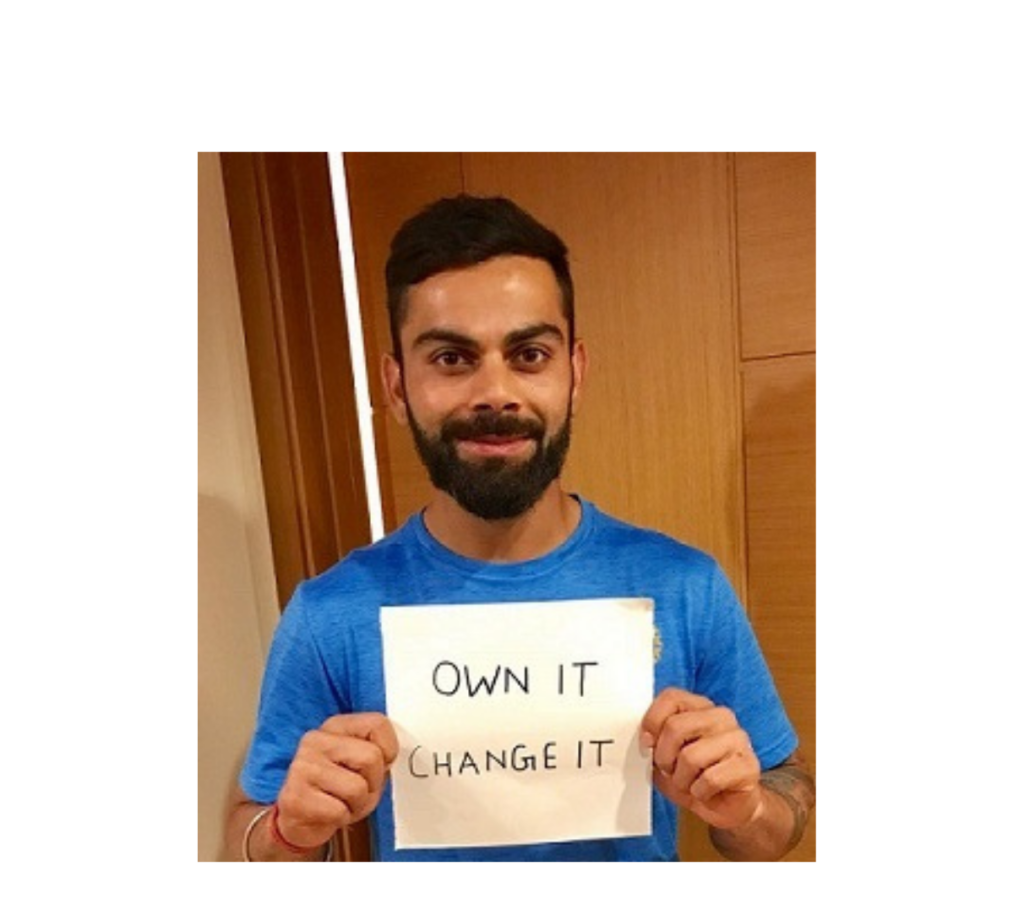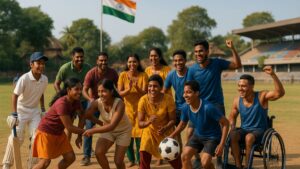Imagine a pressure cooker. The fire – red, hot and flaming underneath it, ensures that the broth boils to a boiling point, the pressure stifling and engulfing transcends into steam, and the whistle finally roars, crying out in defiance, cooking the broth. Dinner is then served through a baptism of fire. Now multiply that pressure with the fires of expectations, hopes, dreams, anguishes, and criticisms of a billion people, and you would have peeked into the mind of an Indian cricketer. There is mounting pressure that follows them like a shadow, with hardly a release in sight, irrespective of how big the player is.
Take, for instance, Virat Kohli himself – who is now the untouched God of Cricket – found himself stranded on the 2014 tour of England. “In England 2014, I didn’t know what to do, what to say to anyone, and how to speak and how to communicate. And to be honest, I couldn’t have said I’m not feeling great mentally and need to get away from the game. Because you never know how that’s taken.” This coming from an internationally capped player representing his nation at the highest level speaks volumes about the taboos and the misconceptions about mental health that still exist in this day and age. In a recent interview, Robin Uthappa too spilled the beans on his uphill battle with depression, where he spoke about being severely depressed to the point where he became suicidal between 2009 and 2011. In a country where Cricket is revered and worshipped, the margin of error is even more negligible. The ever-looming lens of scrutiny, magnified by the millions of fans who watch it, is a stark reality that cannot be ignored.
However, over the past couple of years, the cries are finally being heard, and proper measures are being slowly taken. Teams are beginning to realise that the need for mental health related support is of utmost importance and are beginning to embrace them. We look at the measures that Indian Cricket ought to take to ensure that enough support is available at all levels to safeguard its most valuable assets – the players.
1) The need to be open about the mental side of the game right from the grassroots to the top
The consensus amongst the vast majority who play cricket in the towns, the villages, and the cities is that strong cricketers do not need to talk about or address the mental battles they face. It gives the perception of being negative and weak. This eventually has led to a distressing pattern. Consequently, cricketers are falsely hardwired not to acknowledge or admit if they are having issues that need immediate attention. This has to change fundamentally. Enabling systems such as webinars, seminars held by senior/former players who have represented cricket at higher levels ought to be held more often, thus urging younger cricketers to speak about the issues they face and get help right at the start. The setting up of dedicated anonymous helplines could also help in breaking the stigma and concerns attached to revealing one’s identity while seeking help. Reliable systems need to be integrated into coaching centres, academies and clubs that educate players about the symptoms of mental illness and suggest steps on dealing with them, including assisting in seeking professional help when required.
2) Sports Psychologists/Mental Conditioning coaches are the need of the hour
A distressing finding showcases that against the required 30000 mental conditioning coaches/psychologists needed, a mere 2000 are available in the country. This void needs to be filled as conditioning the mental aspect of the game is perhaps the most pivotal aspect in shaping a cricketer’s career. Therefore, mental conditioning coaches must be an integral part of the support infrastructure not only at the highest level but at lower rung ones like the Ranji Trophy, club cricket, and the universities.
3) Known & Established players need to be change drivers
No revolution was ever started without an enigmatic leader. The “mental well-being revolution” needs all the attention it deserves from the who’s who of cricket. When asked to comment on Glenn Maxwell’s break from cricket to deal with his troubles with mental exhaustion, Kohli was warmly receptive and spoke at great lengths about the need to have a mechanism in place to deal with the mental well-being of players. Such change enablers who command immediate attention and respect are needed to bring about change in the true sense of the word. This opens up opportunities for players to feel comfortable speaking about these issues and, more importantly, encourage the thousands of others who are suffering in silence to come out and freely talk about it and get the help they need.
4) The Use of Technology
Apps, surveys, and wellness education programs need to be developed and urged to be used by cricketers in clubs, academies and coaching classes. Valuable insights like mood swings, fatigue and sleep patterns can be identified to understand triggers and when a player may need immediate help.
5) Dedicated Support of the BCCI
The cricket board must adopt a pragmatic and accommodating approach towards mental well-being in aspects such as player rotations, breaks, and leaves. Player rotations that are currently based majorly on players’ physical fitness need to factor in the mental aspect as well. Players who need breaks – small or long ones – to deal with their mental roadblocks need to be backed and supported.
Photo Courtesy – Virat Kohli (@imVkohli)/ Twitter.












